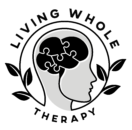
Mental health is an essential aspect of our overall well-being, yet it remains a topic shrouded in stigma and misunderstanding. This stigma, deeply ingrained in society, prevents many individuals from seeking the help they need. It’s time to break the silence and address how mental health stigma affects people and what we can do to change it.
Understanding Mental Health Stigma
Mental health stigma involves negative attitudes and beliefs about people who have mental health conditions. These attitudes often lead to discrimination, marginalization, and isolation. Stigma can be internalized by individuals, leading to feelings of shame and self-doubt, which exacerbates their mental health struggles.

The Impact of Stigma on Seeking Help
- Fear of Judgment: Many people avoid seeking mental health services because they fear being judged or labeled as “crazy” or “weak.” This fear is particularly pronounced in cultures where mental health issues are not openly discussed, leading to a lack of understanding and empathy.
- Shame and Embarrassment: The stigma surrounding mental health can make individuals feel ashamed of their struggles. They may believe that they should be able to handle their issues on their own, without professional help. This sense of embarrassment can prevent them from reaching out for support.
- Misinformation and Myths: Misconceptions about mental health conditions and treatments contribute to stigma. For instance, the belief that mental illness is a sign of personal failure or that it can be overcome with sheer willpower discourages people from seeking professional help. Educating the public about the realities of mental health is crucial in combating these myths.
- Cultural and Societal Barriers: In some cultures, mental health issues are seen as a taboo subject. Traditional beliefs and values may discourage open discussion about mental health, leading individuals to suffer in silence. Additionally, societal expectations, such as maintaining a strong and stoic exterior, can further deter people from seeking help.
- Access and Availability: Stigma can also affect the availability and quality of mental health services. In communities where mental health is stigmatized, there may be a lack of resources and support systems. This lack of access can make it even harder for individuals to seek and receive the help they need.
Breaking Down the Barriers
To combat mental health stigma and encourage people to seek help, we must take collective action. Here are some steps we can take:
- Raise Awareness: Education is a powerful tool in reducing stigma. By raising awareness about mental health conditions, their prevalence, and the effectiveness of treatments, we can challenge misconceptions and foster a more understanding and supportive society.
- Promote Open Dialogue: Encouraging open and honest conversations about mental health can help normalize these discussions. Sharing personal stories of recovery and resilience can inspire others to seek help and reduce feelings of isolation.
- Support Mental Health Initiatives: Supporting mental health organizations and initiatives can improve access to services and resources. Advocating for better mental health policies and funding can also make a significant difference in the availability of care.
- Challenge Stereotypes: Confronting and challenging stereotypes and discriminatory behavior towards those with mental health conditions is essential. This can be done through education, advocacy, and by setting an example in our own attitudes and behaviors.
- Foster Inclusive Environments: Creating inclusive and supportive environments in workplaces, schools, and communities can help reduce stigma. Providing mental health resources, support groups, and training for mental health awareness can make these environments more accommodating.

Break the Silence
Mental health stigma remains a significant barrier to seeking help, but it is not insurmountable. By raising awareness, promoting open dialogue, supporting mental health initiatives, challenging stereotypes, and fostering inclusive environments, we can create a society where mental health is understood, respected, and prioritized. It’s time to break the silence and ensure that everyone has the opportunity to seek the help they need without fear or shame.
If someone you know would benefit from this article, feel free to share this with them. Also, if you would like to work on your mental health, a therapist can help you with the process. Please do not hesitate to reach out.
American Psychiatric Association. (n.d.). Stigma and discrimination. Retrieved [July 31, 2024], from https://www.psychiatry.org/patients-families/stigma-and-discrimination
Healthdirect Australia. (n.d.). Mental illness stigma. Retrieved [July 31, 2024], from https://www.healthdirect.gov.au/mental-illness-stigma
Mayo Clinic Staff. (n.d.). Mental health: Overcoming the stigma of mental illness. Mayo Clinic. Retrieved [July 31, 2024], from https://www.mayoclinic.org/diseases-conditions/mental-illness/in-depth/mental-health/art-20046477
